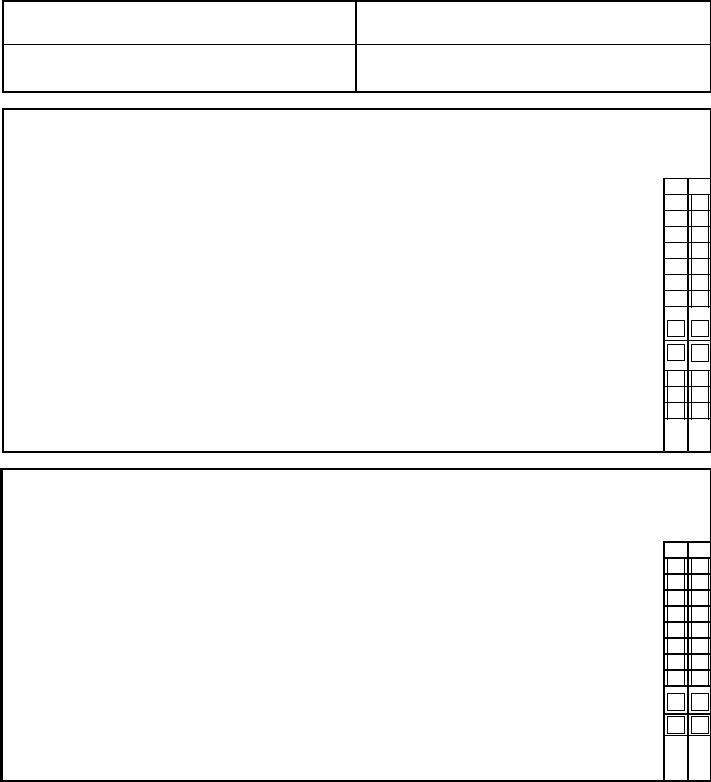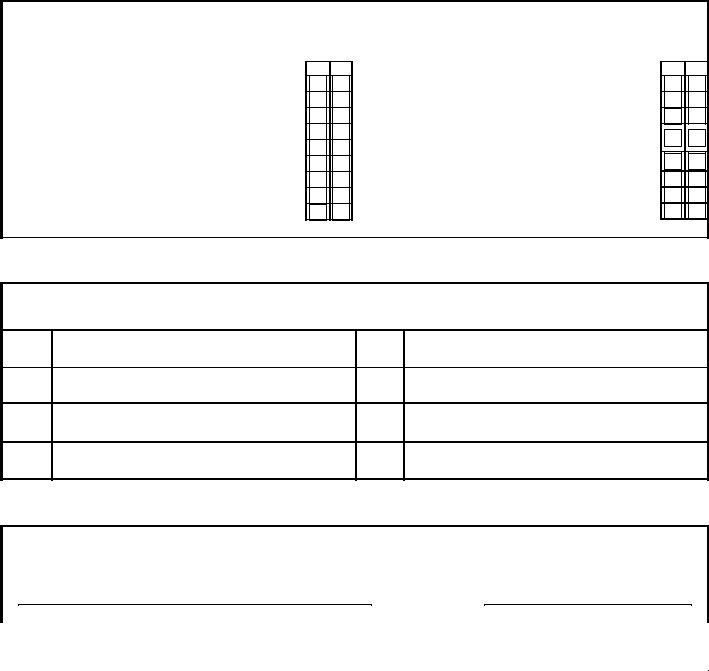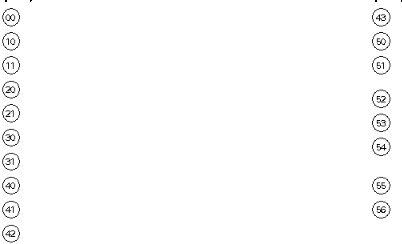In today's meticulously regulated employment landscape, the Department of the Army takes a nuanced approach to ensure that individuals entering nonappropriated fund positions are a right fit physically for the roles they aim to fill. This careful consideration is encapsulated within the DA Form 3666, a comprehensive documentation tool designed to evaluate an applicant's physical capability for light duty work. This form meticulously gathers data on an array of physical and environmental endurance factors, ranging from an applicant's ability to read small print or discern colors to their capacity to withstand various physical demands such as sitting or standing for extended periods, lifting objects, or working in potentially challenging environmental conditions like extreme temperatures or noise levels. Furthermore, the form delves into the applicant's ability to navigate tasks that could be hampered by physical limitations, ensuring that individuals are well-suited for their prospective roles without posing a risk to themselves or others. Instructions provided guide applicants through each section, emphasizing the need for honest and detailed responses, which are then subject to evaluation by appointing officers. These officers, armed with insights from the completed form, may require medical examinations or further assessments to validate the suitability of candidates, thereby reinforcing the Department of the Army's commitment to maintaining a safe and productive workplace.
| Question | Answer |
|---|---|
| Form Name | Da Form 3666 |
| Form Length | 4 pages |
| Fillable? | No |
| Fillable fields | 0 |
| Avg. time to fill out | 1 min |
| Other names | light duty work restrictions forms pdf, da form light, da 3666 duty blank, da 3666 work form |

DEPARTMENT OF THE ARMY
NONAPPROPRIATED FUNDS
STATEMENT OF PHYSICAL ABILITY FOR LIGHT DUTY WORK
For use of this form, see AR
INSTRUCTIONS TO APPLICANT
Please read instructions for each section carefully before answering the questions. Type or print answers in ink. If additional details are required, use Section D. After completing this statement, be sure to sign your name and give the date in Section E. Your replies will be evaluated in terms of the particular position for which you are applying. (AT THE DISCRETION OF THE APPOINTING OFFICER, A MEDICAL EXAMINATION MAY BE REQUIRED.)
IDENTIFICATION OF APPLICANT
NAME (Last, First, Middle)
DATE OF BIRTH (YYYYMMDD)
ADDRESS (Number, Street, City, State and ZIP Code)
TITLE OF POSITION APPLIED FOR
|
|
SECTION A - PHYSICAL LIMITATIONS |
|
Answer each circled item "YES" or "NO" by placing an "X" in the proper box below. If you answer "YES" to any circled item, give additional details in |
|
||
Section D. |
|
||
1. |
Do you have any problem: |
YES |
|
|
|||
|
(a) |
reading small newspaper print (glasses permitted)? |
|
|
(b) |
reading ordinary newspaper headlines without glasses? |
|
|
(c) |
seeing distant objects with either eye (glasses permitted)? |
|
2. |
. . . . . . . . . . . . . . . . . . . . . . . . . . . . . . . . . . . . . . . . . . . . .Do you have difficulty in distinguishing basic colors (red, green, blue)? |
|
|
3. |
. . . . . . . . . . . . . . . . . . . . . . . . . . . . . . . . . . . . . . . . . . . . . . . . . . . . . .Do you have difficulty in distinguishing shades of colors? |
|
|
4. |
. . . . . . . . . . . . . . . . . . . . . . . . .Do you have any hearing problem, including hearing telephone conversations (hearing aid permitted)? |
|
|
5. |
. . . . . . . . . . . . . . . . . . . . . . . . . . . . . . . . . . . . . . . . . . . . . . . . . . . . . . . . . . . . . . . . . . . . . . . . . .Do you wear a hearing aid? |
|
|
6.Do you have any speech impairment which hinders:
(a) person
(b) telephone conversation? . . . . . . . . . . . . . . . . . . . . . . . . . . . . . . . . . . . . . . . . . . . . . . . . . . . . . . . . . . . . . . . . . . . . . . . . . .
7. Do you have an amputation or abnormality of a leg, foot, arm, hand, and/or finger? . . . . . . . . . . . . . . . . . . . . . . . . . . . . . . . . . . . . .
8. Do you have difficulty in using arms, hands, or fingers for reaching in any direction, grasping, handling, or fingering?. . . . . . . . . . . . . .
9. Do you have any disease or disability which would make your employment in light duty work a hazard to yourself or others? . . . . . . . . . .
NO
SECTION B - PHYSICAL ENDURANCE FACTORS
Answer each circled item "YES" or "NO" by placing an "X" in the proper box to show your physical ability to carry out the listed activities during each work day. If you answer "NO" to any item, give additional details in Section D.
DURING THE WORK DAY ARE YOU PHYSICALLY ABLE TO PERFORM ACTIVITIES INVOLVING:
YES
1. Sitting for long periods of time? . . . . . . . . . . . . . . . . . . . . . . . . . . . . . . . . . . . . . . . . . . . . . . . . . . . . . . . . . . . . . . . . . . . . . . .
2. Standing for long periods of time? . . . . . . . . . . . . . . . . . . . . . . . . . . . . . . . . . . . . . . . . . . . . . . . . . . . . . . . . . . . . . . . . . . . . . .
3. Some walking on flat surfaces, slight inclines, and occasionally climbing stairs? . . . . . . . . . . . . . . . . . . . . . . . . . . . . . . . . . . . . . . . .
4. Frequent walking and/or climbing of stairs or steep inclines? . . . . . . . . . . . . . . . . . . . . . . . . . . . . . . . . . . . . . . . . . . . . . . . . . . . . .
5. Occasional pushing and pulling motions as needed? (For example, opening and closing doors, drawers, etc.) . . . . . . . . . . . . . . . . . . . .
6. Frequent pushing and pulling motions? (For example, frequent opening and closing file drawers) . . . . . . . . . . . . . . . . . . . . . . . . . . . . .
7. Occasional bending, stooping, and crouching? (For example, reaching the bottom shelf of a supply cabinet) . . . . . . . . . . . . . . . . . . . . . .
8. Frequent bending, stooping, and crouching? (For example, frequently opening and closing lower file drawers) . . . . . . . . . . . . . . . . . . .
9. Occasionally lifting objects weighing up to
ledgers, dockets, or lightweight equipment) . . . . . . . . . . . . . . . . . . . . . . . . . . . . . . . . . . . . . . . . . . . . . . . . . . . . . . . . . . . . . . . .
10. Occasionally lifting objects weighing up to
NO
DA FORM 3666, NOV 2008 |
PREVIOUS EDITIONS ARE OBSOLETE. |
Page 1 of 4 |
APD PE v1.00ES

SECTION C - ENVIRONMENTAL ENDURANCE FACTORS
Some positions may involve unusual working conditions or working outside. Answer each circled item "YES" or "NO" by placing an "X" in the proper box. If you answer "NO" to any circled item give additional details in Section D.
Can you work under the following conditions:
1. Outside (frequently) . . . . . . . . . . . . . . . . . . . . . . . . . . . . .
2. Severe heat . . . . . . . . . . . . . . . . . . . . . . . . . . . . . . . . . .
3. Severe cold . . . . . . . . . . . . . . . . . . . . . . . . . . . . . . . . . .
4. Severe humidity . . . . . . . . . . . . . . . . . . . . . . . . . . . . . . .
5. Severe dampness or chilling . . . . . . . . . . . . . . . . . . . . . . . .
6. Dry atmospheric conditions . . . . . . . . . . . . . . . . . . . . . . . .
7. Severe noise . . . . . . . . . . . . . . . . . . . . . . . . . . . . . . . . . .
8. Constant noise . . . . . . . . . . . . . . . . . . . . . . . . . . . . . . . .
9 . Dusty atmospheres . . . . . . . . . . . . . . . . . . . . . . . . . . . . .
YES
NO
10. Some exposure to fumes, smoke, or gases . . . . . . . . . . . . . .
11. Some contact with solvents, greases, and oils . . . . . . . . . . . .
12. Occasional walking over rough terrain . . . . . . . . . . . . . . . .
13. Some climbing of short ladders (For example, to
reach upper supply shelves) . . . . . . . . . . . . . . . . . . . . . . .
14. Working below ground surface . . . . . . . . . . . . . . . . . . . . .
15. Working alone . . . . . . . . . . . . . . . . . . . . . . . . . . . . . . . .
16. Occasional travel . . . . . . . . . . . . . . . . . . . . . . . . . . . . . .
17. Frequent travel . . . . . . . . . . . . . . . . . . . . . . . . . . . . . . .
YES NO
SECTION D - ADDITIONAL DETAILS
This space is for detailed answers to Sections A, B, and C. |
(Give item No & Section letter.) If you need more space, attach additional sheets. |
|
|
Item No. |
Item No. |
SECTION E - CERTIFICATION BY APPLICANT
I CERTIFY that all the information I have furnished is correct to the best of my knowledge and belief.
(Applicant's Signature) |
|
(Date) (YYYYMMDD) |
|
|
|
|
|
|
|
|
|
SECTION F - (DEPARTMENT OF THE ARMY USE ONLY) |
|
|
|
1. POSITION TO WHICH APPLICANT IS ASSIGNED |
2. OTHER ACTION TAKEN |
|
3. HANDICAP CODE |
|
|
|
|
4. NAME OF INSTALLATION |
5. NAME OF EMPLOYING NAF |
|
|
|
|
|
|
6. SIGNATURE OF APPOINTING OFFICER |
7. OFFICIAL TITLE |
|
8. DATE (YYYYMMDD) |
|
|
|
|
DA FORM 3666, NOV 2008 |
Page 2 of 4 |
APD PE v1.00ES
DEPARTMENT OF THE ARMY
NONAPPROPRIATED FUNDS
STATEMENT OF PHYSICAL ABILITY FOR LIGHT DUTY WORK
INSTRUCTIONS TO APPOINTING OFFICER
This statement is to be used in lieu of a Certificate of Medical Examination for Department of the Army Nonappropriated Fund positions whose maximum physical requirements do not exceed those identified on the questionnaire and may properly be evaluated by an appointing officer.
If either as a result of replies on the statement, or of personal observation, the appointing officer believes the applicant is physically unable to do the job or would create a hazard to himself/herself or others, the appointing officer may require the applicant to undergo a medical examination as a prerequisite to employment in the position.
(The examination may not be required solely on the basis of the
In addition, for positions having unusual sight or hearing requirements an appropriate specialized examination may be required.
In all cases, the statement should be completed and reviewed prior to employment and before the applicant incurs any expense in traveling a distance to a duty station .
Completed statements may be disposed of as soon as they have served the purpose of the appointing officer.
COMPLETING AND REVIEWING THE STATEMENT
1.Fill in "Title of Position Applied For" under "IDENTIFICATION OF APPLICANT".
2.Circle in RED the item number of the questions, in each section, which will determine the applicant's physical ability to perform the duties of the position. Circle ONLY those items which pertain to the physical requirements of the job, or in the case of Section C, the environmental factors.
3.After the applicant completes the statement, take appropriate action as indicated by the applicant's replies. A medical officer should be consulted when indicated by detailed replies. Complete item 3, Section F, "FOR DEPARTMENT OF THE ARMY USE ONLY," by entering the appropriate handicap code . The list of handicaps and corresponding codes is on the reverse side of these instructions.
DA FORM 3666, NOV 2008 |
Page 3 of 4 |
APD PE v1.00ES

HANDICAP CODES AND INSTRUCTIONS
(Note carefully numbers and definitions)
CODE |
CODE |
||
|
|
|
|
Normal hearing with speech malfunction.
Tuberculosis - inactive pulmonary.
Organic heart disease (compensated) - valvular, arrhythmia, arteriosclerosis, healed coronary lesions.
Diabetes - controlled.
Epilepsy - adequately controlled.
History of emotional or behavioral problems requiring special placement effort.
Mentally retarded.
Mentally restored .
code number in item 3, Section F most limiting. If none of the handi-
Page 4 of 4
APD PE v1.00ES